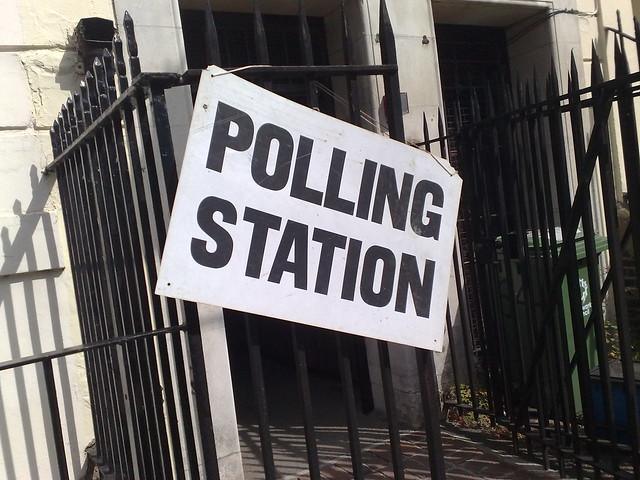Will young voters’ apathy take down Europe?
Posted By Dominique Moisi on May 23, 2019 @ 11:00

The need for a strong, unified Europe has never been greater. But enthusiasm for the European project has rarely been so weak, at least among the young. According to a recent poll [1], about three-quarters of French voters aged 18–24 don’t intend to use their democratic privilege in this week’s European Parliament election [2]. Forty per cent of that cohort didn’t even know the election was taking place.
How can one convince the young that their chances of enjoying the peace and prosperity that have benefited their parents and grandparents may hinge on a single election? Today’s youth have only ever known freedom; historical references to Checkpoint Charlie (the most famous of the Cold War border crossings between East and West Berlin) are too distant and abstract to affect them. Without obvious examples of oppression, the only way to explain freedom to them is to describe its absence. The same challenge applies to peace. Yes, it is the absence of war, but what does that mean to someone who has never experienced bombardment?
In the absence of a satisfactory education about freedom and peace, young people have defaulted to a mixture of indifference and outright rejection of the European project. I recently witnessed this firsthand when speaking at a prestigious French science school on the topic of the election. Many of the students had already voted with their feet: the number of people attending my lecture on the geopolitics of television series was one-tenth what it had been three years ago. Apparently, young people this month were more focused on 20 May, the European broadcast date for the series finale of Game of Thrones, than on 23–26 May, when voting takes place.
When I called this inversion of priorities a profound political and ethical lapse on the part of young people, some of the students who did show up responded rather brutally. They challenged me to explain why anyone should care about a petty play with bad actors. Why, they asked, was I defending a ‘dead utopia’ when the survival of the very planet is at stake? When put in those terms, the defence of representative democracy, or even of peace, becomes a ‘secondary’ concern.
How did we end up here? For starters, the European Union in 2019 suffers from a series of disconnects and fallacies—not to mention the near breakdown of its ‘Franco-German engine’—all of which have been absorbed in the public consciousness. There’s a yawning gap between what the EU was meant to be and what is has become.
After World War II, the European mantra became ‘never again’ and Franco-German reconciliation was key. But now, the EU’s raison d’être is a mix of external and internal goals. When the European project was launched, addressing ecological threats such as climate change and the loss of biodiversity was not—and could not have been—conceived as a priority. But now, the ecological battle has almost been lost. In decades past, European security was guaranteed by the United States through NATO. Today, Europeans are more concerned about terrorism and the flow of migrants across their borders than about threats posed by nation-states.
Beyond these disconnects, it would be an understatement to say that European Commission presidents have lacked charisma ever since Jacques Delors [3] vacated the post in 1995. Seeking to avoid having any rivals at the EU level, national politicians have consistently selected EU leaders for their limitations, rather than for their merits. The EU thus became anonymous and abstract.
The EU’s structural weaknesses have been aggravated by the European Parliament election campaign. Debates about the European project itself were largely absent. In France, for example, the poll has become a referendum on President Emmanuel Macron [4]. The result is that European Parliament elections are increasingly becoming the equivalent of national midterm elections. This evolution is both sad and dangerous, and no doubt explains why voter turnout has been declining [5] for years.
And yet, for geopolitical and ideological reasons, the rest of the world is watching Europe with bated breath. This year’s European Parliament election, after all, is the most important since 1979. While young people in Europe are looking elsewhere, Russian President Vladimir Putin and supporters of US President Donald Trump are eagerly hoping for a nationalist/populist upset that will cripple the union.
A defeat for Macron’s pro-European camp in France, like the defeat for Remainers in the United Kingdom’s 2016 Brexit referendum, would be seen as a victory for anti-European forces. Putin, having supported [6] such forces in France and elsewhere, would certainly welcome such an outcome, as would Trump, as he prepares to run for re-election in 2020.
At the end of the day, Europe matters far more than younger Europeans seem to realise. The European Parliament election is in many ways a referendum on democracy and multilateralism, without which we will never be able to confront global challenges such as climate change. Young voters are right to worry about such issues, but if they really want to address them, first they had better worry about what happens this week.
Article printed from The Strategist: https://aspistrategist.ru
URL to article: /will-young-voters-apathy-take-down-europe/
URLs in this post:
[1] recent poll: https://www.ifop.com/publication/les-jeunes-et-les-elections-europeennes-de-2019/
[2] European Parliament election: https://www.project-syndicate.org/bigpicture/the-battle-for-brussels
[3] Jacques Delors: https://www.project-syndicate.org/columnist/jacques-delors
[4] Emmanuel Macron: https://www.project-syndicate.org/columnist/emmanuel-macron
[5] voter turnout has been declining: https://www.project-syndicate.org/commentary/european-parliament-election-voter-turnout-by-yves-leterme-and-sam-van-der-staak-2019-05
[6] supported: https://www.project-syndicate.org/commentary/european-parliament-election-populists-for-putin-by-guy-verhofstadt-2019-05
Click here to print.